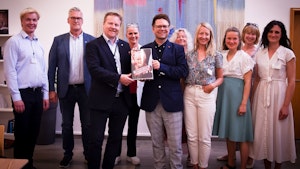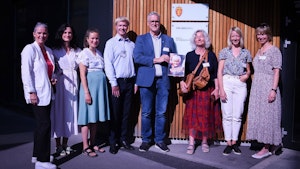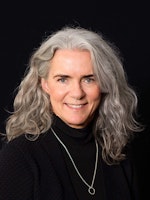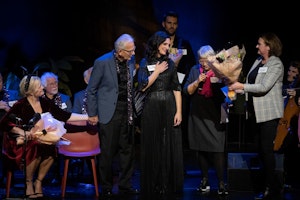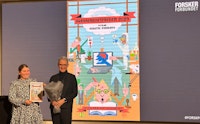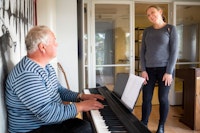Tuesday 13 June secretaries Ole Henrik Krat Bjørkholt (The Ministry of Health) and Odin Adelsten Aunan Bohmann (The Ministry of Culture and Equality) met with professionals from CREMAH (Centre for Research in Music and Health, NMH), Norsk forening for musikkterapi (NFMT), Norges korforbund and Sang i eldreomsorgen (Krafttak for sang).
They propose a government implementation package in the form of a national grant scheme, which ensures access to dementia choirs for all those in need.
– The country has woken up, said Aunan Bohmann as he wished everyone welcome.
Rune Frank Brunslid from Norges korforbund (The Norwegian Choir Federation) appropriately began with the federation's slogan: "Singing throughout life.”
– For people with dementia, the choir rehearsal is often the only social gathering point they have throughout the week, he explains.
Beatrix van Doorn from Sang i eldreomsorgen (Singing In Eldercare) added:
– In connection with dementia choirs, we often discuss individuals with dementia who live at home. But it also applies to those residing in eldercare facilities. Both should be part of a larger ecosystem. We also know that transitioning from home to an institution can be challenging. These processes can become more stable with smooth transitions and supportive services that accompany them throughout the journey.
She also highlights the importance of those working in the institutions, and the need to collaborate and be familiar with each other. However, the institutions require guidance and support from professional communities to build resilient services.
